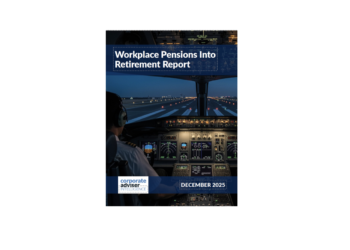Almost 86 per cent of DB schemes are currently in surplus but 36 per cent of sponsors require guidance on how to use these funds effectively, according to research from LawDeb.
The research, which includes 150 finance decision-makers in UK companies with DB schemes, shows how surplus levels differ by scheme size. More specifically, 76 percent of smaller schemes with assets between £100 million and £249 million, 90 per cent of mid-sized schemes with assets between £250 million and £499 million, and 93 per cent of larger schemes with assets between £500 million and £999 million report a surplus.
Many schemes are still unsure about their future course of action, even with robust funding levels. Around 33 per cent are still debating their options, and another thirty-three per cent intend to put the extra money back into their company. Of those with a clear plan, 61 per cent want to improve member benefits, 56 per cent want to divide the excess between members and the sponsor, and 69 per cent want to return cash to the corporation while only 3 per cent are still indecisive.
Despite being a viable option to buyout, 76 per cent of schemes do not intend to pursue this course of action. Advisory fees are the main obstacle, as stated by 41 per cent of respondents, followed by investment risk (36 per cent), regulatory and governance issues (31 per cent), and legal risks (27 per cent).
Furthermore, 27 per cent of respondents think staffing costs are too high, 25 per cent think the administrative burden is too heavy, and 25 per cent are concerned that the scheme would go back to deficit or require further contributions. Meanwhile, 9 per cent do not have the capacity to manage their scheme were it to run on.
Additionally, due to a lack of awareness, 18 per cent would not know where to begin while 2% haven’t considered run-on as an option for their schemes at all.
LawDeb Pensions managing director Sankar Mahalingham says: “While a majority of DB schemes are reporting a surplus, many firms are undecided about how best the surplus can be utilised, for their business and for members of the schemes they sponsor. The ultimate decision may well not rest with the business, depending on the Trust Deed and Rules, and it is important for employers to engage with the trustees early to understand their views.
“Surplus is not a novel concept within the pensions industry, but harnessing it for its full potential can prove to be tricky. This becomes even more concrete with the Government’s potential pensions reforms to utilise these funds to support economic growth – while still protecting members’ benefits. Therein lies the role of an independent trustee, who should proactively engage with the sponsor, while recognising their responsibility to ensure they follow the powers under the Trust Deed and Rules, as well as acting in line with the purpose of the trust. An independent trustee can work alongside firms towards making the best decisions, both for the business and for members, rather than companies not engaging in considering which routes would be most beneficial – and potentially missing out as a result.”





